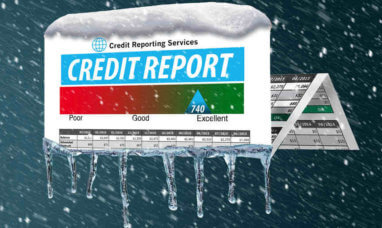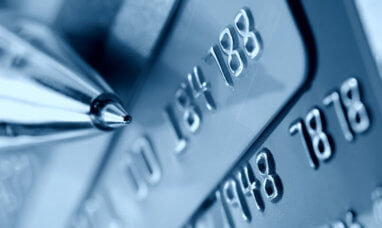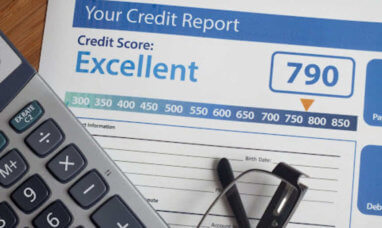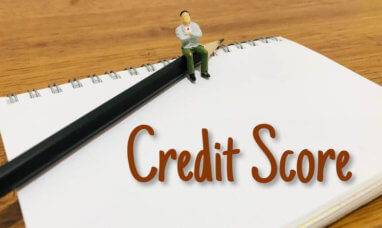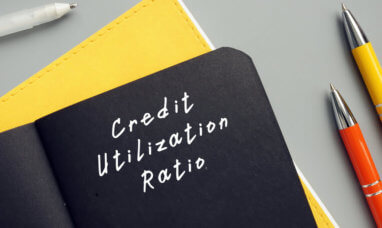There’s nothing more freeing than making your final debt payment. And while paying down debt does improve your score, paying it off entirely may not have the effect that you’re looking for.
In fact, having no debt at all can cause a credit score drop. Here’s what you need to know about why you had a credit score drop after paying off debt.
Shouldn’t Paying Off Debt Help my Credit Score?
Yes and no. It’s true that creditors want you to repay them after lending you money. With that said, it’s reasonable to think that paying off debt could only improve your credit score. However, credit formulas aren’t that simple.
A large portion of your credit score is determined by credit utilization. This is the percentage of available credit that you’re using. You can figure out your utilization amount by using a utilization credit card calculator. There are also easy to use credit card utilization spreadsheets.
Ideally your credit utilization should be less than 30%. However, having no debt means that you aren’t using any credit, which puts your credit utilization at 0%. While it’s good to have no debt, not using any credit will cause your score to decrease.
Be aware that there are other factors that can cause a drop, including:
-
-
- The average age of all open accounts. If you recently paid off a credit card, car loan or mortgage and have closed the account, your age of accounts may be reduced. This is why it’s important to keep accounts open, even after paying them off.
- Types of credit that you have. Variety is key to having a high credit score. Your score improves when you have a mix of credit types, including both installment and revolving accounts.
-
Consider this scenario. You made the final payment on a car loan. Your payment history is flawless and you’ve always kept your credit card balances low. However, because you have one less account, and if all of your remaining accounts are all credit cards, your credit mix is negatively impacted.
The same scenario applies to credit cards. Paying off a card lowers your credit utilization. But, if you close the account, you lose that account’s credit limit, which lowers your available credit and increases your utilization.
Before paying off debt, be sure that you know exactly how it will impact your credit score. If your score decreases after paying off debt, consider keeping a small balance on the card and pay it off each month to give your score a boost.
How to Pay Off Debt and Help Your Credit Score
Paying off credit card debt first is a wise decision to improve your financial health and credit card. This is because cards typically have higher interest rates when compared to installment loans. Paying down a credit card also lowers your credit utilization.
This number is calculated per card and overall. If you have any cards that are close to their limit, pay them down ASAP. Keeping your balances below 30% should be a top priority.
Other credit building tips to keep in mind include:
-
-
- Always pay on time or within the grace period. Late payments can seriously damage your credit and stay on your report for years.
- Keep credit cards open. Unless there’s a compelling reason to close it, such as poor customer service or a high annual fee, retain your credit card accounts. Remember, when you close an account, it may reduce your average account age. It also decreases your available credit, which increases credit utilization.
- Use credit lightly. If there’s a card that isn’t cutting it anymore, it’s best to put a small, recurring charge on it. You’ll then want to set up autopay so that the balance is pad off each month. This way you don’t miss paying the bill and the issuer can’t close the card due to inactivity.
- Don’t keep installment loans open just because. Deciding to keep an installment loan active to avoid hurting your credit score only costs you money. Don’t pay unnecessary interest for the sake of your credit score.
-
How do I Keep my Credit Score From Dropping?
Once you’ve paid off a loan or credit card to zero, there are several things you’ll want to do to protect your credit.
Start by setting up payment reminders so that you’re never late. Most issuers send email and text alerts when your due date is nearing. Using autopay is another great option.
Check your credit for discrepancies. Remember, you’re entitled to one free credit report from the credit bureaus each year.
If you notice any errors on your report, contact the creditor immediately to get it sorted out. Having an error on your report makes it much harder to improve or maintain a healthy score.
Don’t apply for several credit products around the same time. Opening a new line of credit requires a hard inquiry. It also lowers the average age of your credit accounts. Both of these factors can cause a small drop in your score.
It’s best to wait at least six months between credit applications. This way your score isn’t dinged for too many inquiries.
Last but not least, be patient. Sometimes the best thing you can do is to wait for your score to rebalance itself after paying off debt. A combination of good habits and patience will help your score to rebound.
FAQs
What’s a good credit score?
A good credit score depends on the credit bureau. There are three main credit bureaus, including Equifax, Experian, and TransUnion.
A good credit score for Equifax is 670 to 739. For Experian, a good credit score is 661 to 780. And for TransUnion, a good credit score ranges from 690 to 719.
My credit score dropped after leasing a car – why?
After leasing a new car, your score likely dropped because of the hard inquiry made to your account. The new loan has more than likely also increased your credit utilization.
How many points does a repossession drop your credit score?
It depends on the type of repossession. A voluntary repossession will cause your score to drop by at least 100 points. The repo will remain on your credit report for seven years.
Featured Image:



